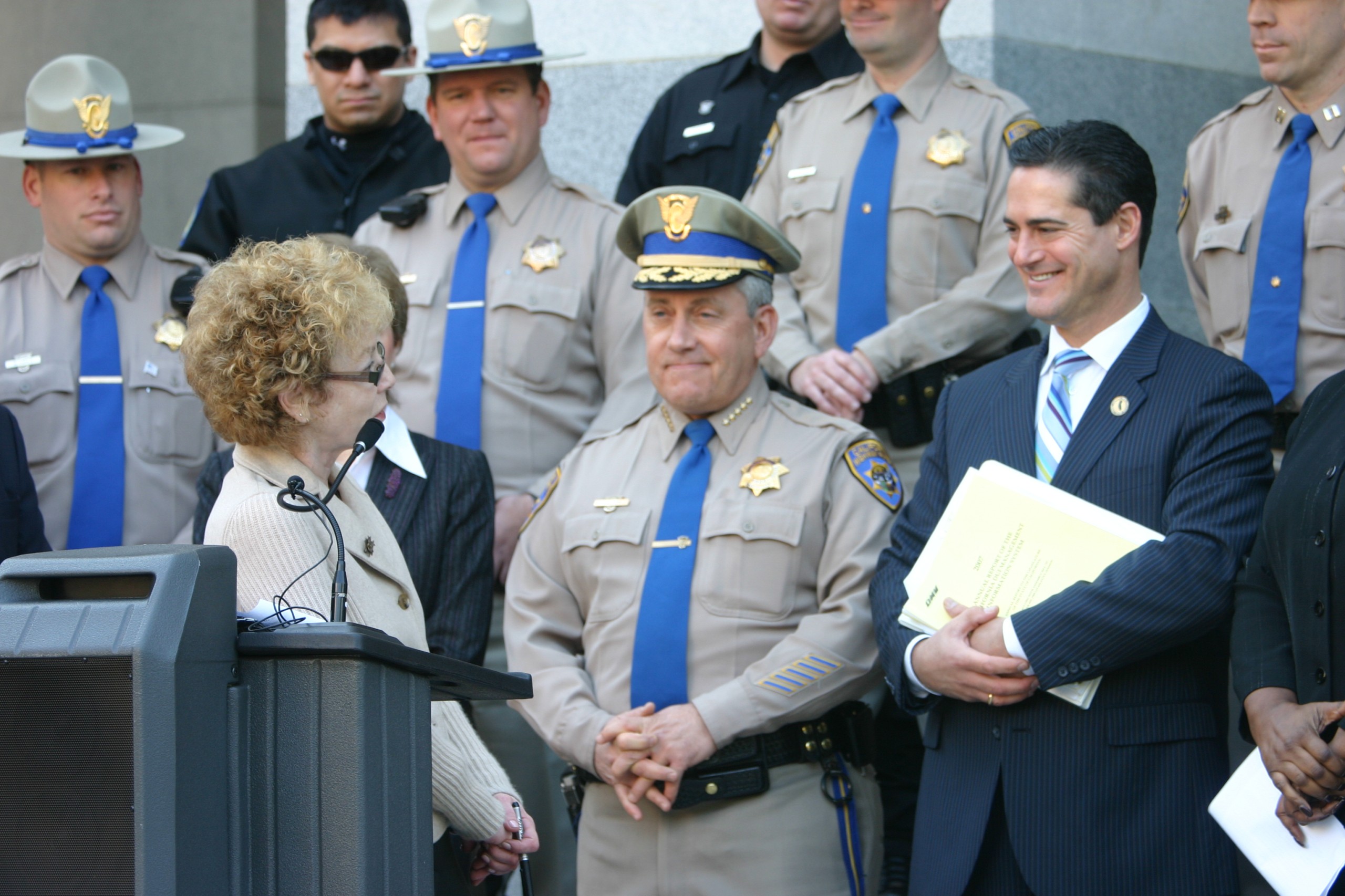When I heard that conservative Assemblyman Todd Spitzer had teamed up on legislation with ultra-liberal State Senator Carol Migden, I had to inquire… And this is what Todd Spitzer had to say:
When a democrat and a republican partner up on a legislative idea it usually turns heads for Capitol watchers. But when a liberal San Francisco Democrat pairs up with an Orange County Republican conservative observers naturally ask the question: how and why? I appreciate the FlashReport asking.
When a person is arrested for DUI, the officer confiscates the CDL and issues a temporary paper 30 day license. Two actions begin simultaneously: an administrative action by the DMV and a criminal proceeding if the DA files charges. For a first time DUI, the CDL is suspended for 90 days. During the first 30 days, the suspension is “hard” and the offender cannot drive for any purpose. The balance of 60 days, the offender may drive to and from work and to and from an ordered alcohol program.
The problem: the suspension has become just a fiction. In 2005, more than 23,000 offenders still drove while their license was suspended or restricted and in 2006 that group grew to nearly 29,000. People need and want their cars and they are risking going to jail despite the suspension or restriction. We are not stopping them from getting a venti coffee in the Starbucks drive-up or from visiting their girlfriend. Those same years, DUI fatalities actually grew by 7% (1,500 deaths a year on our California roads caused by DUI [even more if you add drugs]).
In addition, since MADD began with its first national chapter here in California in 1980 the entire DUI landscape has changed for the better. Blood alcohol presumptions have dropped from .10 BAC to .08% BAC and the numbers of first time offender convictions has been reduced dramatically. Law enforcement has been a critical partner to compliment the public education campaigns lead by MADD.
But last week, MADD California and MADD national and the California Highway Patrol Commissioner Mike Brown joined us to announce SB 177 because we need to take an additional proactive approach to DUI. Commissioner Brown and I traveled to New Mexico three weeks ago where that state has the most aggressive first time offender program in the nation. Ironically, New Mexico added a first time IID program in 2004 led by a Democrat and a Republican. Today, those legislators and the public have seen a 38% recidivism rate in first, second and subsequent DUI offenses. Injury and fatality car crashes are down more than 28%.
It makes sense. We have tried to take away the license and we see the results. Repeat offenders are continuing to kill innocent victims. “Taking away” the car by electronically shutting it down to an offender who has been drinking makes sense and is proven to work. We now have the ability to put a cop in the front seat of every offender’s vehicle.
When I returned from New Mexico ready to introduce this legislation on behalf of the CHP, I learned that Senator Migden was calling a press conference the next day to introduce the IID legislation. She had read about MADD’s technology conference in Albuquerque promoting the IID and had already decided to introduce the idea for California. When I approached the Senator and shared my work and passion on the same issue, she graciously invited me to jointly author SB 177 with her. We both agree that simply passing tougher penalties on CDL suspensions is not working. We must literally be able to temporarily take away the offenders car.
Sometimes legislative colleagues just come together to advance good public policy. I am hopeful that this partnership will result in one more way to save lives and promote greater highway safety.

